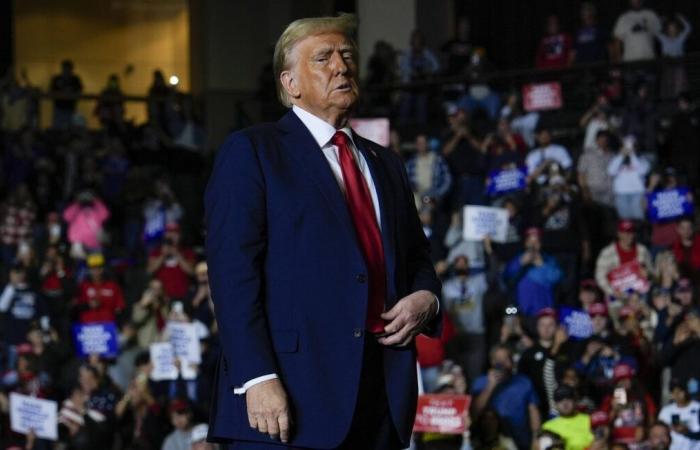“Is a skinnier Trump a more electable Trump? “, asked Slate last April, while tracing the weight and the change in silhouette of the former American president. The Republican candidate actually caused a lot of ink to flow by losing 20 pounds – around 9 kg – a few months ago. Dissecting the bodies of stars remains one of the tabloids' favorite exercises, and politicians are not immune to this scrutiny. In the political arena too, the weight weighs heavy.
“The example of Donald Trump is a mirror of what is happening in society,” reacts Marielle Toulze. Fat people are seen as incapable of controlling their bodies, so how could they control a country? »Society therefore remains infused with negative prejudices about fat people. “A fat body is considered a passive body and, therefore by extension, a passive personality that lacks willpower,” adds the lecturer at the University of Saint-Étienne and associated researcher at the ELICO laboratory.
“From Flamby to Piglet”
Grossophobic prejudices are all the more scrutinized in politics because it is an “exercise of seduction”, explains Alexandre Eyries, teacher-researcher in information and communication sciences at the Catholic University of Paris. 'West. “During almost the entirety of his political career, François Hollande was given nicknames, each more derogatory than the last, ranging from Flamby to Piglet,” he recalls. The former French president had also gone on a drastic diet to prepare for the 2012 presidential campaign. A loss of 17 kg according to Pierre Dukan, who assured in the media that his diet was at the origin of this change.
Despite this dizzying weight loss, François Hollande has often been mocked for his figure. According to BFMTV, Nicolas Sarkozy regularly whispers to him “haven’t you gained a kilo? » when they cross paths. The former leader of the Republicans had also advised a deputy to lose weight if he hoped to enter the government in 2009, according to The Parisian. “We know very well that they are obliged or, at least, strongly pushed to lose weight to appear legitimate as leaders,” agrees Marielle Toulze.
The V of male power
And precisely, even today, the physique of the leader is combined with the masculine. “A leader is supposed to be physically imposing. And Donald Trump wants to have a stature in line with his very eruptive, very aggressive style of political communication,” notes Alexandre Eyries. However, “among men, size refers to curves, to the feminine,” emphasizes Marielle Toulze. To break the roundness of his silhouette, Donald Trump also relies on his clothes. They allow him to accentuate his build and, thus, lose a few kilos visually.
“The cup [des costumes] of Donald Trump is made in such a way as to conceal his weight,” explains Derek Guy, men’s fashion specialist, on strengthening the shoulders gives a “more powerful, authoritative and formal” appearance to a silhouette, explains Derek Guy. “The V corresponds to aesthetic criteria, but it is also the V of virilism. He thus displays the gender stereotypes that he advocates and that he tries to carry about himself,” notes Marielle Toulze.
The America of Hollywood rather than the America of obesity
Finally, in the United States, the question of weight is eminently political. In 2018, the White House doctor announced that Donald Trump weighed 108 kg. A weight which, coupled with his height (1.90 m according to him), bordered on obesity. This assertion was also received with suspicion by many political observers who suspected the doctor of having taken a few kilos off the president. In a country where more than 40% of the population is obese, “politicians must correspond to the ideal of Hollywood America. […] An obese presidential candidate would reflect the image of a certain America, but it is a festering wound for American society” across the Atlantic, slips Alexandre Eyries.
Prejudices and fatphobia therefore do not spare Americans who are overweight. “Fat or obese people understand that it is their fault and even more so in the United States, where you have to build yourself, be a winner, and where the inability to lose weight is seen as a failure” , deciphers Marielle Toulze. However, weight loss goes far beyond the question of willpower. And, as Alexandre Eyries says, “it’s very cruel. Because you can obviously be an excellent leader while being overweight.”






